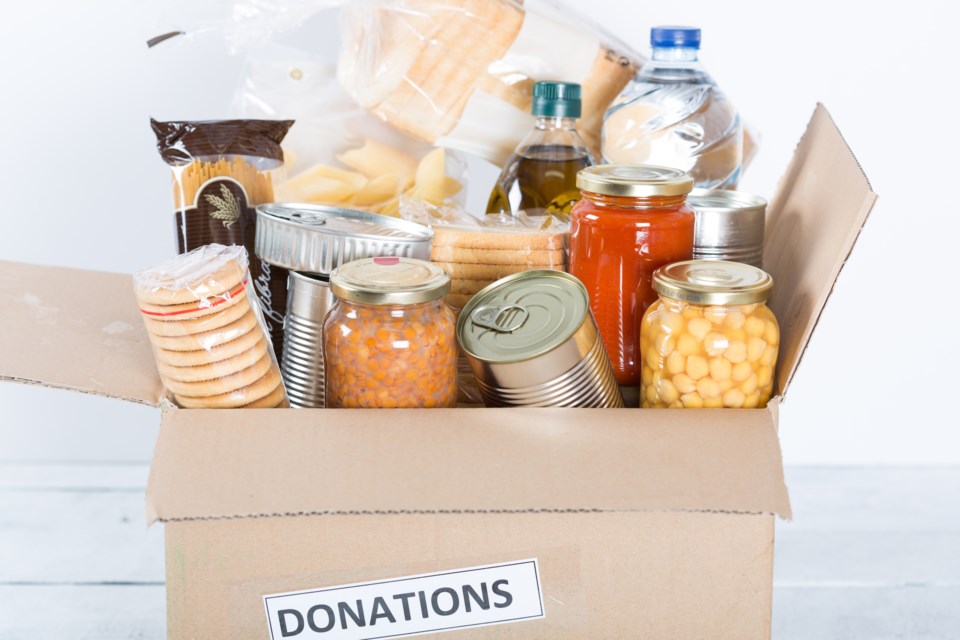NEWS RELEASE
FOOD BANK OF WATERLOO REGION
**************************
While the calendar has flipped to a new year, bringing fresh starts and resolutions for many, The Food Bank of Waterloo Region’s CEO, Kim Wilhelm, remains focused on the organization’s ongoing mission—obtaining and distributing emergency food to ensure that no one in the community goes hungry.
“Our top priority this year is ensuring we can continue meeting the growing need for food assistance in Waterloo region,” says Wilhelm. “This means optimizing our operations, including sourcing, storing, and distributing food more efficiently. With demand at record levels, we’ll also explore ways to enhance our infrastructure to better support the Community Food Assistance Network.”
Last fall, The Food Bank shared that one in eight households in Waterloo region is accessing food assistance—a staggering 150 per cent increase since 2022. Food hamper visits rose by 24 per cent last year, surpassing 558,000 visits. Even more concerning was the rise in new household seeking help: more than 8,400 accessed food assistance for the first time, marking a 12 per cent increase.
“These numbers highlight just how pervasive the issue has become,” Wilhelm explains. “It’s not just statistics; it’s about the growing number of people in our community facing hardships and relying on food programs for support. Ongoing economic challenges, like rising living costs, a critical shortage of affordable housing, and food inflation, are forcing families to make tough choices between essentials like rent or mortgage, utilities, and groceries.”
While Wilhelm acknowledges the difficulty in forecasting with certainty, she anticipates that the need for food assistance will remain high in 2025.
“The economic pressures we’re seeing are persistent challenges with no immediate relief in sight,” she says. “Our focus remains on being prepared to meet the community’s needs, whatever they may be. We’re committed to working with our partners, donors, and supporters to ensure no one in Waterloo region goes without food, regardless of how the numbers fluctuate.”
Wilhelm attributes The Food Bank’s ability to continue its critical work to the community’s ongoing generosity. She emphasizes that collective support—through food donations, financial contributions, and volunteer efforts—is vital to ensuring individuals and families facing food insecurity receive the assistance they need.
“I always say that Waterloo region is a unique place,” Wilhelm notes. “The community’s generosity is truly unmatched, and it’s what makes this region so special. Time and again, individuals, businesses, and organizations step up to make a difference—whether through donations, volunteering, or raising awareness about food insecurity. The spirit of giving here isn’t just about charity; it’s about fostering a sense of togetherness and shared responsibility for each other’s well-being. This collective kindness helps us tackle challenges like food insecurity and builds a stronger, more resilient community for everyone.”
In December, the Region of Waterloo approved The Food Bank’s request for permanently increased funding to its annual grant. While the $1.5 million allocation falls short of the original $2 million request, Wilhelm calls it a significant investment in supporting those who need it most. Still, she stresses that community support will be crucial to meeting the growing demand for food assistance this year.
“Financial donations are incredibly impactful—they enable us to buy fresh, nutritious food in bulk and respond quickly to the community’s specific needs,” Wilhelm explains. “Food donations, especially non-perishable, high-protein items like canned meats, beans, and peanut butter, are always welcome. Volunteering is another vital way to make a difference, whether it’s sorting food, assisting at events, or helping with deliveries. Finally, partnerships—whether with businesses, community groups, or individuals—hosting food drives or fundraisers can have a tremendous impact.”
Despite the challenges ahead, Wilhelm finds hope in the community’s resilience and generosity.
“Repeatedly, people step up,” she says. “I’m also inspired by the dedication of our Community Food Assistance Network partners, who work tirelessly on the front lines to ensure no one goes without food. Their commitment reminds me of the strength we have when we come together to support one another. Seeing the tangible results of our collective efforts—every meal shared, every family supported, every new partnership formed—is deeply motivating. To everyone in our community who contributes—whether through food or financial donations, volunteering, or advocacy—thank you. It’s this unity, shared purpose, and unwavering support that gives me hope, even as we face growing challenges.”
Ways to get involved
Donate funds: Donate funds to help The Food Bank continue its mission of providing food to those in need. Financial donations can be made online at thefoodbank.ca/donate, by phone at 519.743.5576, or in person at 50 Alpine Court, Kitchener.
Donate food: The Food Bank is calling for non-perishable food donations, especially items like canned fruits and vegetables, and tomato sauce. These donations can be dropped off at local grocery stores or at police, fire, or paramedic stations across Kitchener-Waterloo.
Attend an event: Events offer a great opportunity to connect with The Food Bank and make a difference. Details about events supporting The Food Bank can be found at thefoodbank.ca/events.
Volunteer time: Those looking to make a direct impact can volunteer at The Food Bank’s distribution centre or assist with an upcoming fundraising event. For volunteer opportunities, visit thefoodbank.ca/volunteer.
For more information, please visit thefoodbank.ca.
**************************



